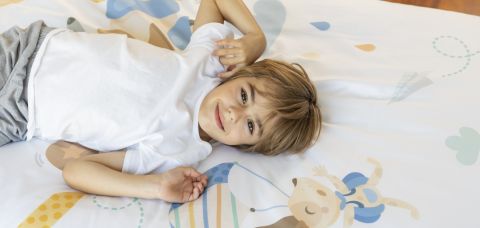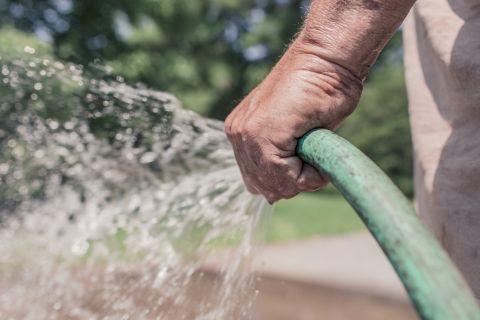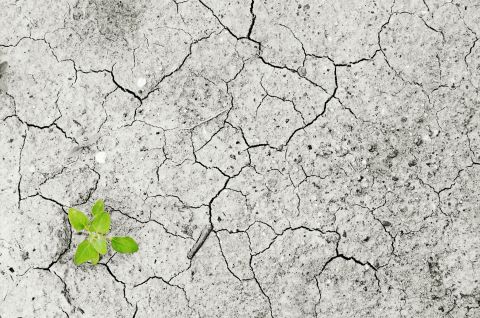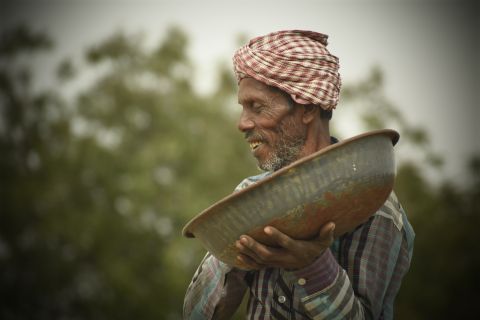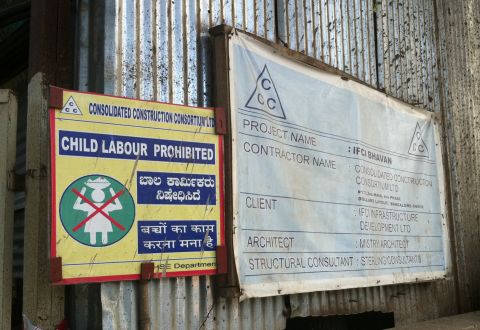When it comes to our kids, terms like natural, organic and safe are music to our ears, because buying products with these labels helps us feel like we’re giving our kids the best start in life. The trouble is, all that we see, read or hear, cannot necessarily be believed. Terms like these, including the much-beloved ‘organic,’ may be loosely regulated. That’s why it’s important to be informed, so you know how to tell a truly organic product from a misleading one. When it comes to organic cotton, the Global Organic Textile Standard (GOTS) is the bees-knees. So, when it’s GOTS certified, you know that every part of a cotton textile product is exactly as it should be - 100% safe for your little ones. Here are 5 reasons why it’s worth choosing GOTS certified bedding, for the good of our planet, our people and of course, your kids.
1. Of the water used to produce organic cotton fibres, 90% less comes from environmentally damaging sources
According to WWF, when it comes to growing cotton the conventional way, two significant factors are damaging the environment: the diversion of water from natural waterways and the pollution related to cotton growth. These have had severe impacts on some of the world’s most important ecosystems.
However organic cotton which is GOTS certified does not, and cannot follow these harmful practices if it is to wear the official GOTS certified organic labels.
When we talk about water consumption for growing cotton, it’s essential to first understand the three types of water: green, blue and grey.
- Green is rainwater and moisture stored in the soil which is used for plant growth
- Blue comes from rivers, lakes and underground and is diverted for the purpose of irrigation
- Grey is freshwater that is used to dilute the pollution within wastewater (the water used during cotton processing), in order to maintain water quality to appropriate levels.
95% of the water used in producing organic cotton fibre is green water, and there is 91% less blue water used than in the production of non-organic cotton. As the use of blue water negatively impacts our environment and green water doesn’t, you can see that the method of production for organic cotton is exceedingly better for environmental reasons.
In fact, to put this in perspective, conventional cotton uses an incredible 11 times the amount of blue water than what is used for producing organic cotton.
2. There are no toxins in the wastewater
Cotton is by nature, a water-intensive or ‘thirsty’ crop. This means that it requires a lot of water to thrive and as a result, there is considerable wastewater. We’ve already demonstrated how organic cotton is produced with the most environmentally-friendly water type - green water. And luckily, GOTS certified organic cotton is not permitted to have pesticides or other toxins used in any part of the growing and processing stages (using only non-toxic ways of managing pests).
That means the wastewater produced from GOTS certified organic cotton is free of toxins, and must also comply with procedures designed to minimise waste discharge. This is significant because, with conventional cotton, one-fifth of the water used in cotton production is used only to dilute the pollution from wastewater. This use of grey water for conventional cotton is the definition of water wastage.
3. There are no toxins in contact with workers OR consumers
The pesticides and herbicides routinely used in the production of cotton are highly toxic to humans. This is a real safety concern. And scarily, conventional cotton production also consumes the highest amount of pesticides and herbicides compared to any other plant.
More chemical pesticides are used for cotton than for any other crop. Cotton accounts for 16 percent of global insecticide releases. 60 percent of the world’s cotton is used for clothing and another 35 percent for home furnishing.The World Counts
Workers deserve to be safe in their place of employment, and that’s why compliance with GOTS prohibits the use of pesticides and herbicides in the production of organic cotton. In this way, the GOTS certification protects farm workers and factory workers from the direct exposure to harmful chemicals they would face when producing conventional cotton, while also protecting consumers (like your little ones with their oh-so-delicate skin) from any harmful residual effects in the end product.
4. There must be appropriate working conditions
According to organiccotton.org, textile processing mills, such as those used to produce conventional cotton are commonly found to flout the regulations of labour rights. That’s why the socio-economic aspects of the GOTS standard are so important.
You see, GOTS certification does not permit child labour at any stage of organic cotton growth, production and processing. The production of these cotton textiles must meet other key conventions of the International Labour Organisation as well, including, but not limited to:
- Workers choosing employment freely
- Working conditions must be safe and hygienic
- There is protection of living wages
In short, the GOTS certification protects people from labour exploitation.
5. It’s one standard targeting three areas of wellbeing
There are other textile standards which do admirable things. For instance, the Oeko Tex Standard 100 addresses the toxins which may be present in products, from a health perspective. And this shouldn’t be disregarded. However, Oeko-Tex Standard 100 doesn’t require compliance with environmental or social aspects of production.
And that is the overarching answer to the question: Why choose GOTS? Because GOTS certified textile products meet strict standards across all three areas: health, environmental and social.
What’s more, GOTS knows cotton. In fact, the GOTS certification applies only to cotton and other organic raw material industries like wool and silk. It covers every aspect of the production of natural fibres, all the way through to manufacture and is far stricter than the Oeko-Tex certification.
When we’re talking about the safety of our planet, including our little ones, it’s got to be GOTS.
Luckily, we specialise in GOTS-certified kids bedding. Check out our adorable range kids bedding set range!

